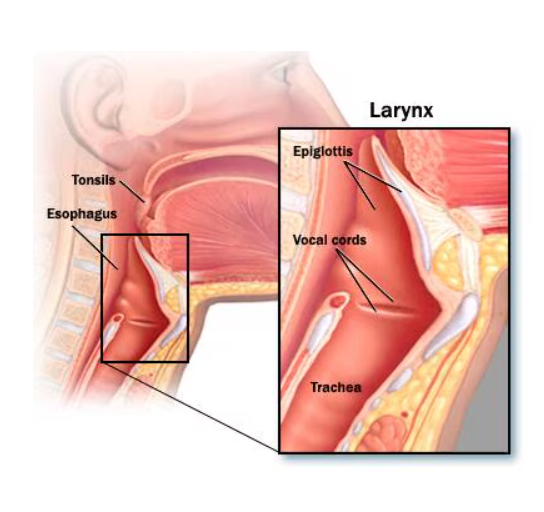An irritation, scratchiness, or pain in the throat is called a sore throat. It usually worsens when a person swallows. In most cases, pharyngitis (sore throat) is caused by viral infections (including the flu and cold). However, when a sore throat happens due to viral infections, it usually disappears on its own.
Some people may experience strep throat (streptococcal infection), which is a less common form of pharyngitis. In such cases, it appears due to bacteria and often requires treatment to prevent complications. Physicians usually prescribe antibiotics to treat streptococcal infections.
Symptoms
The symptoms of pharyngitis depend on the cause. Check below some sore throat symptoms:
- Red and swollen tonsils
- Swallowing problems
- Pain or a scratchy sensation in the throat
- Pus or white patches on the tonsils
- A muffled or hoarse voice
Check below also some symptoms of the infections that usually provoke pharyngitis:
It is advised to contact your pediatrician right away if your child experiences breathing problems, difficulty swallowing, and usual drooling. However, in adults, the following symptoms may indicate you have pharyngitis. Examples include difficulty breathing and swallowing, joint pain, earache, rash, high fever, lump in the neck, and hoarseness.
Causes
There are different sore throat causes but the most common are the flu and cold. Check below some less often pharyngitis causes. Examples include:
Viral Infections
- Measles
- Coronavirus (COVID-19)
- Mononucleosis (mono)
- Chickenpox
- Croup
Bacterial Infections
Different bacterial infections can provoke sore throats. The most common bacterial infection is streptococcus pyogenes (group A streptococcus).
Other Causes
- Allergens – These include pet dander, molds, dust, and pollen.
- Dryness – Dry indoor air usually leads to a dry and sore throat.
- Irritants – Air pollution also can cause pharyngitis. These include different chemicals, tobacco smoke, and others. Furthermore, spicy foods, alcohol, and chewing tobacco also can irritate the throat.
- Muscle strain – An increased strain in the throat muscles provokes yelling, talking loudly, or for long periods.
- Gastroesophageal reflux disease (GERD) – This is a health condition in which the stomach acid returns to the esophagus.
- HIV infection – Some people experience chronic or recurring pharyngitis due to fungal infections such as oral thrush.
- Tumors – Those who have cancerous tumors in the throat, tongue, or voice box (larynx) usually experience sore throat. Noisy breathing, a lump in the neck, blood in saliva, swallowing problems, and hoarseness are the most common symptoms.
Risk Factors
Anyone can get this health problem and the following factors could increase your risk. Examples include:
- Age – Children and teens are more prone to develop a sore throat and strep throat.
- Tobacco smoke – Secondhand smoke and smoking can irritate the throat, which leads to pharyngitis. Moreover, smoking can increase your risk of mouth, throat, or voice box cancer.
- Allergies – Some people experience a sore throat due to seasonal allergies and due to certain allergens including molds, pet dander, or dust.
- Chemicals – There are some chemical particles in the air that can irritate the throat.
- Chronic or recurrent sinus infections – In such cases, the infection can spread to the throat and provoke pharyngitis.
- Poor immunity – When you have a weakened immune system you are more likely to develop infections that could lead to a sore throat. The most common causes of a weakened immune system are diabetes, HIV infection, steroid medicines, chemotherapy drugs, stress, fatigue, and poor diet.
How to Prevent a Sore Throat?
One of the most effective ways to prevent pharyngitis is good hygiene, which helps to get rid of germs that provoke this condition. Check below some tips:
- Wash regularly and thoroughly your hands for at least 15-20 seconds with warm water and soap, especially after sneezing or coughing.
- Do not touch your face, eyes, or mouth
- You should not share your food, utensils, or drink glasses with other people.
- If you cannot wash your hands, use an alcohol-based sanitizer.
- It is recommended to abstain from touching public objects (such as phones).
- Do not contact with sick people, especially if they experience symptoms.
Diagnosis
In most cases, a physical examination is enough to diagnose this condition. A physical exam includes a special instrument that helps doctors look at the throat, ears, and nasal passages, feel the neck and verify the swollen lymph nodes, and listen to the breathing using a stethoscope. Furthermore, physicians use a swab test to identify the bacteria that provoke strep throat. It involves a sterile swab that doctors rub over the back of the throat to get a sample of secretions. Then, they send these samples to the laboratory for testing.
Treatment
Commonly, pharyngitis caused by a viral infection does not require treatment and goes away within 5 days. However, doctors may prescribe some medicines to lessen pain and fever including Acetaminophen, Ibuprofen, and others.
In any case, do not give teenagers and children Aspirin because it may provoke Reye’s syndrome. This is a life-threatening condition that causes swelling in the brain and liver.
In case your sore throat is caused by a bacterial infection, doctors usually recommend antibiotics. It is very important to follow the doctor’s recommendations carefully because not finishing the treatment may lead to the return of the condition or the spreading of the infection to other body parts. Additionally, if you are administering antibiotics without a doctor’s prescription it may increase the risk of rheumatic fever or kidney inflammation in children. Discuss with your healthcare professional if you forget to administer a dose.
Frequently Asked Questions
What are the potential complications of sore throat?
One possible complication is an abscess (a sack of pus) that appears next to the tonsils or in the back of the throat. Another one is rheumatic fever which can appear after a sore throat goes away. Therefore, you can experience high fever, joint pain, rash, heart inflammation, and others.
How long a sore throat usually lasts?
Commonly, it lasts roughly 4-5 days and goes away on its own. You may need treatment if this throat condition is caused by a bacterial infection.
What drinks can improve sore throat symptoms?
For more details, consult with your healthcare professional.




